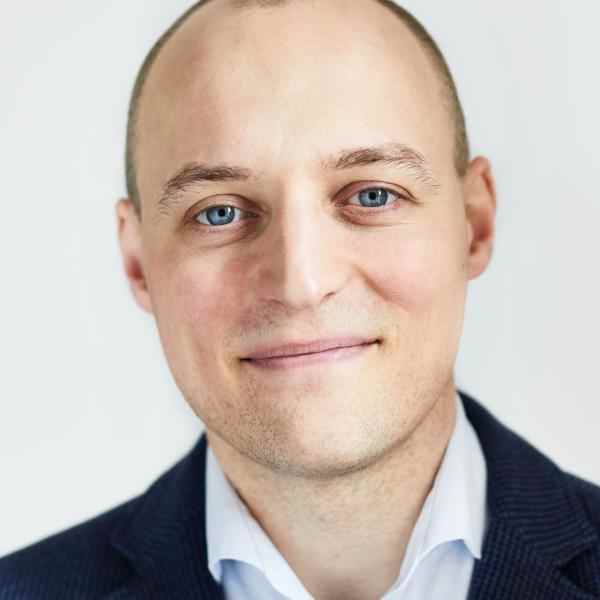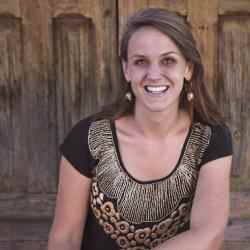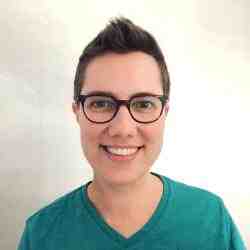Martin has applied a three-pronged strategy to ensure the spread of palliative care best practice across Czechia’s healthcare system. First, the Centre uses its data-rich studies to build the evidence base for patient-centered end-of-life care and inform trainings for doctors, nurses, carers, and hospice workers. Second, Martin cultivates strategic partnerships with key stakeholders and funders so that, through co-creation of new studies and outreach, he expands and strengthens the palliative care ecosystem. And third, Martin will increasingly lead communication campaigns to ensure his core message about difficult conversations and compassionate care engage the general public, too.
Aware of the role that doctors play at the apex of Czechia’s healthcare hierarchy, Martin identified them initially as the key demographic for sparking change and decided they would take notice if his Center was grounded in well-cited research applied to the Czech context. More than 50 studies have been published on topics such as the importance of patient autonomy at end-of-life, factors to consider when sharing prognoses with cancer patients, and measuring the benefits of a palliative care approach. Professional associations, foundations, and leading universities in Europe and North America are often co-authors. These studies have built a shared knowledge base and informed practical palliative care done by hospitals, GPs, hospices, and care homes across the country. Martin’s goal is to teach the system something different: how to use data to drive compassionate, patient-centered decisions about end-of-life care where mental wellbeing and pain management are at least as important to consider as the prospect of more time. Martin also uses data to shift the metrics by which doctors and other healthcare professionals measure success when treating the terminally ill.
The Center also provides palliative care trainings for healthcare professionals that are informed by the Center’s research. It does this through in-house and on-site courses, as well as through online webinars. Around 2,500 attend these courses on average each year. Doctors can enroll in ESPERO, which focusses on enabling doctors to communicate difficult news to patients. Three professional associations – the Czech Society of Palliative Medicine, the Czech Oncological Society, and the Czech Society of Nephrology – collaborate on and endorse the course. There are ESPERO courses for pediatricians and nurses, too. A course specifically for GPs to enhance their palliative care skills and knowledge has also been offered. Topics include the effective use of opioids and patient-centered end-of-life care. Nearly 20% of Czechia’s GPs have taken the course. Paramedics can enroll in a training on palliative care in emergency medicine. Non-medical workers can enroll in introductory courses on palliative care and end-of-life planning. Several of these courses are accredited by the Czech Ministry of Labour and Social Affairs, and fees range from US$125 to $450 depending on course content and length. The breadth of offerings is meant to ensure that no one actor in the extended healthcare system is disproportionately responsible for scaling palliative care best practice. The opportunity and responsibility are spread across institutions and roles.
Strategic partnerships with funders, healthcare providers, and professional organizations - all cultivated by Martin’s entrepreneurialism and informed by the Center’s research - are central to his success. His collaboration with the Abakus Foundation, one of the region’s largest private funders of palliative care, has ensured steady financial support for the Centre since its launch. It also led to a five-year, nationwide program - proposed and led by Martin - to catalyze 26 hospitals of all sizes to develop their palliative care services. The populations these hospitals serve saw on average a 100% increase in palliative care access as a result, and the program, which was also supported by the Czech Society of Palliative Medicine, was recognized by the UN for its alignment to the SDGs. Another collaboration with Abakus and the Sue Ryder House (NGO providing support services for older adults) is enabling 30 Czech care homes to develop their own palliative care policies based on their respective needs and informed by similar work Martin has tracked in Austria. Staff are mentored with particular focus on communication to help normalize talk about death and dying. Relationship building with residents and hospices to which they may be referred is also key. A board of stakeholders rather than the Center itself oversees program implementation to ensure shared ownership and knowledge-building. A new role, that of palliative care coordinator, has been created as a result – a first in the country’s care home ecosystem. Martin and his team designed the role description and competencies model, and many of the homes have since secured additional long-term funding from donors to ensure the coordinator role is institutionalized.
The Center has made it a practice to invite government officials as observers of collaborations such as these, given the role that public funding plays in sustaining and scaling innovation. For example, for the five-year Abakus program with hospitals, Martin and colleagues invited two civil servants responsible for drafting palliative care policy for the Ministry of Health to observe. Their experience was pivotal in a subsequent program of the Ministry that engaged seven hospitals to continue this work once the Abakus program ended.
Other impactful partnerships have included a collaboration with eight Czech hospices to develop an innovative framework that measures the quality of end-of-life care. It combines data normally gathered by hospices and a new four-page bereavement survey to capture the experiences of family caregivers. The Center analyses the collected data to surface trends for hospice review. This partnership has contributed to a 50% increase in the hospices’ survey response rate, and the framework has now been officially endorsed by Forum Mobilnich Hospicu, a national network of 40 hospices.
Martin is also partnering with Czechia’s seven medical schools and the Czech Society of Palliative Medicine to ensure that future doctors learn about palliative care best practice and impact before they are licensed. Collaboration with Prague’s emergency services, meanwhile, has led to the creation of a new Rapid-PCST screening tool of 5-6 questions about a patient’s past treatment and hospitalization so that clinicians who answer 112 calls can assess whether those for whom an ambulance is requested may instead prefer home-based or hospice care. Listening to patients and their families is prioritized over giving advice. The data this tool has already gathered on cancer patients indicates its effectiveness and has inspired colleagues in the UK (London Ambulance Service) and Canada (Emergency Health Service Nova Scotia) to consider adaptations for their own use. In fact, these colleagues joined Martin on a panel at this June’s European Association for Palliative Care World Congress to discuss their collaboration. The screening tool is also the subject of a new European working group to initiate Europe-wide guidelines based in part on those Martin and the Center drafted and introduced to help Prague’s paramedics talk with patients and their families. Other international partnerships include Center support for an EU-funded project across six countries to develop support for those with a family member facing advanced dementia.
Martin’s third strategy is to complement the Center’s focus on building palliative care best practice through research, trainings, and partnerships with communication campaigns that nudge the general public to talk about death and dying. He has acknowledged that because Czechia has lacked the necessary infrastructure for ready access to palliative care, his work since 2014 has prioritized that to ensure that more hospitals and GP offices are prepared for public demand. Martin believes he has reached an inflection point, as palliative care best practice is increasingly common in hospitals and the time is right for public outreach. He has led his team in the design of a three-year communications plan that includes media interviews, public discussions, and billboard adverts. A campaign calling for general life check-ups, in which the public is invited to take stock of their lives and reflect on whether they are living the life they want, is planned. It is informed by Center research on what matters most as dying patients reflect on their lives, as well as by the Center’s continuous assessments of the availability of palliative care services. Center outreach to date lays the foundation for this forthcoming work, including Martin’s frequent media interviews. He is considered a leading expert on death and dying and more recently did a national television interview on grieving after the death of Queen Elizabeth II. The Center has also translated a card game from America to encourage public discussion of what people want at the end of their lives. More than 1,500 sets have been sold, and the Center has trained more than 60 facilitators. The Center also publishes a monthly bulletin about its latest work for more than 3,000 subscribers.
These strategies for scaling impact have enabled Martin to build a national movement for compassionate end-of-life care. He next wants to map the nearly 1,000 GPs who have trained with the Center and adopted palliative care best practice so that other doctors can find and learn from them. He is also expanding the pilot with Prague’s emergency services to three other regions and will use it to build a growing network of palliative care ambassadors for the exchange of knowledge independent of Center involvement. Ensuring that people with intellectual disabilities and chronic psychiatric conditions have ready access to palliative care is another future focus, as is building new links between the Center and Czech universities.
Martin is building a new market from which other countries in the region can learn. Healthcare professionals in Slovakia and North Macedonia have approached him for help. The Center has advised the Slovakian team to set up their own NGO, and Martin and colleagues will mentor them as they design trainings for healthcare professionals there. And while Martin has turned down a North Macedonian request to advise national policy and strategy development for palliative care services, he thinks international scaling is the next logical step. A franchise model doesn’t interest him. He thinks mentoring others who seek to do what he has done and enabling them to then train and mentor others is likely the best strategy. A growing international network would inspire and help the Center improve its own work, too. Martin is keen to step back from day-to-day administration of the Center, as well, to allow himself more time for strategy development for Europe-wide impact. It is why the Fellowship would prove especially timely.
Read less



